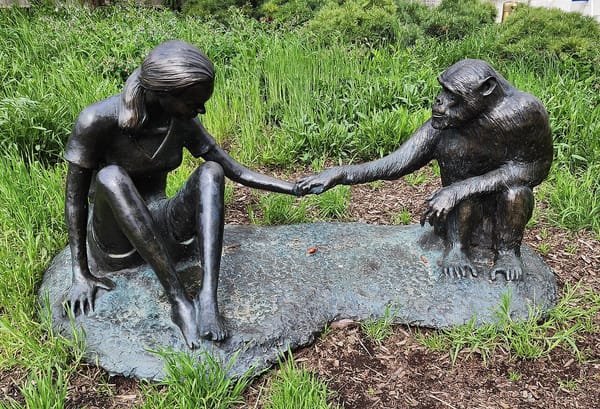Time for proof is now, Mr. Gandhi
Rahul Gandhi is free to voice himself but on the question of the Election Commission “stealing votes”, as he has been claiming to the press, he needs to offer the proof he claims he has right away. By repeatedly claiming the Commission has been “stealing votes” for the Bharatiya Janata Party (BJP), most recently on August 2 and before that on August 1, as well as that his Congress party has proof of this alleged theft yet never actually turning up that proof whether to the Commission or to the courts, Gandhi is acting in bad faith. The effects of his words are likely to keep suspicion of the Commission’s conduct alive even when they may not actually be warranted and to sow in the public sphere doubts about the terms on which the BJP is winning elections.
If the Commission and/or the BJP are really cheating, as Gandhi is implying, duty demands that he and his fellow party members immediately place evidence of that in the public domain, endeavour to stamp out the menace, and agitate for restitutive action.
On August 2, Gandhi said:
“Prime Minister of India is Prime Minister with a very slim majority. If 10-15 seats were rigged, it would have been possible. Although our suspicion is closer to 70, 80, 100 seats. We are going to prove to you in the coming few days how that Lok Sabha election can be rigged and was rigged.”
And on August 1:
“I want to say that the persons in the EC doing this — right from the top to the bottom — we won’t spare. You are working against India and this is treason. Not matter where you are, retired or otherwise, we will find you." …
He claimed his party had suspicions of irregularities in the Madhya Pradesh Assembly election in 2023 and in the Lok Sabha election last year, and this went further in Maharashtra.
“We believe that vote theft has happened at the State level (in Maharashtra). Voter revision had happened and one crore voters were added. Then we went into detail, and with the EC not helping, decided to dig deep into this. We got our own investigation done, it took six months and what we found is an atom bomb. When it explodes, the EC would have no place to hide anywhere in the country,” he added.
On the same day, Gandhi also said his party would reveal what evidence it has of “outrageous rigging of voter rolls” by the Election Commission of Karnataka on August 5. Congress general secretary K.C. Venugopal also said party members would organise a protest in Bengaluru on the same day. But considering the party has claimed to have evidence of electoral fraud in other State elections as well, the reasons for revealing the evidence as it pertains to Karnataka alone are hard to fathom.
Importantly, such evidence should be conclusive rather than founded on opinion and speculation. This means, for example, dispositive proof of collusion supported by official documents containing the relevant statements. Only evidence of this nature would constitute an “open and shut case” — which Gandhi has said he possesses — in a courtroom, which is the only place where the Commission’s guilt, such as it is, can be determined.
In July 2025, in the context of the special intensive revision of electoral rolls in Bihar, Gandhi and opposition parties alleged that the exercise was aimed at "disenfranchising voters" ahead of the Bihar Assembly elections and accused the Commission and the BJP of seeking to "steal votes”. He also claimed the Commission had been caught "red-handed" stealing votes during this exercise.
Perhaps Gandhi’s first public, high-profile accusation was made at a press conference in February 2025, when he said that the Commission had overlooked substantial voter list inflation in Maharashtra, a surplus of 1.6 million relative to the most recent Census figures (2011), and that more voters had been added to the lists in the five months between the Lok Sabha and Maharashtra Assembly polls than in the preceding five years. He also claimed that this discrepancy had been engineered to favour the BJP and called for a formal investigation. However, The Hindu’s data team was able to analyse Election Commission data to check at least the second of Gandhi’s claims and found that it wasn’t unusual:
The spurt in electors in Maharashtra became a subject of controversy after the Leader of the Opposition in the Lok Sabha, Rahul Gandhi, raised the issue at a recent press conference. In Maharashtra, between the Lok Sabha polls held on April 19, 2024, and the Assembly elections held on November 20, 2024 — a period of 215 days — there was a net addition of 39.6 lakh electors.
However, between the Assembly elections on October 21, 2019, and the Lok Sabha polls in April 2024 — a period of 1,642 days — there was a net addition of only 32.2 lakh electors. “Why did the Election Commission add more voters in Maharashtra in five months than it did in five years,” Mr. Gandhi asked.
Data show that the net addition of 39.6 lakh electors in 215 days is not unusually high. Between the Lok Sabha polls on April 20, 2004, and the Assembly elections on October 13, 2004 — a period of 176 days — there was a net addition of 29.5 lakh electors. A similar analysis of 2009, 2014, and 2019 shows net additions of 30 lakh, 27.2 lakh, and 11.6 lakh electors, respectively.
In fact, if the increases are expressed as electors added per day, the context becomes clearer. The net addition of 39.6 lakh electors in 215 days amounts to 18,434 net electors added per day. This figure is not a far cry from the 16,782 net electors added per day in the 176 days in 2004. A similar analysis for 2009 and 2014 shows that 16,746 and 14,519 net electors were added per day, respectively.
Last year, Gandhi, along with Congress members and opposition parties, had alleged large-scale manipulation of voter rolls during the Lok Sabha elections, suggesting the Election Commission was actively aiding the BJP in disenfranchising opposition voters. These accusations continued into 2025.
In almost all these instances, the Election Commission has refuted the allegations and denied that it has been engaged in electoral fraud. However, this democratic institution has lost its independent character over the last few years due to its preferential treatment of the BJP, including when preparing election timetables and sanctioning BJP leaders for breaches of the Model Code of Conduct. The BJP has compounded this impression for its part by modifying the process by which Election Commissioners are appointed to magnify the prime minister’s input and by appointing former Commissioners in cushy government positions shortly after their term at the helm has ended. The Commission’s denials thus don’t hold much water.
In fact, its increasingly diminished reputation lends a soft credence to Gandhi’s claims — i.e. that they are not all implausible — and that is precisely why the evidence needs to be available to all electors right away. Otherwise, Gandhi risks injuring his own reputation, and, more importantly, that will only undermine public resistance to the BJP’s efforts to completely ‘capture’ the Election Commission.
The threats to reveal the alleged fraud are further enfeebled by claims that the Commission's electronic voting machines (EVMs) are illicitly recording more votes for BJP candidates, an allegation that the Congress and other parties have raised vis-à-vis both Assembly and Parliamentary elections. The problems with the claims here are slightly different, and two pronged. First, the alleged mechanism by which EVMs reapportion votes for BJP candidates remain thwartable by the processes the Election Commission has been following, that too with the satisfied participation of representatives from all political parties. Second, not all the technical steps in the process by which the Commission verifies the integrity of its EVMs are interference-proof, however. Yet the Commission has steadfastly refused to submit its devices to independent verification, with the occasional support of a higher court that has failed to appreciate all the methods available to perform these checks without compromising the devices in any way.
Against the backdrop of both allegations — voter-list inflation and EVM-rigging — it is possible Gandhi’s posturing is a form of deterrence, a signal to the BJP that its actions are not passing unwatched, and an attempt to build a Panopticon of public scrutiny of how the Election Commission conducts itself. Yet this can be done without also sowing doubt and while keeping the focus on transparency and propriety, which in fact the democracy has demonstrably lost. In fact, I hope Gandhi isn’t striking the poses he is because these losses are harder to build public support around than "vote theft".



